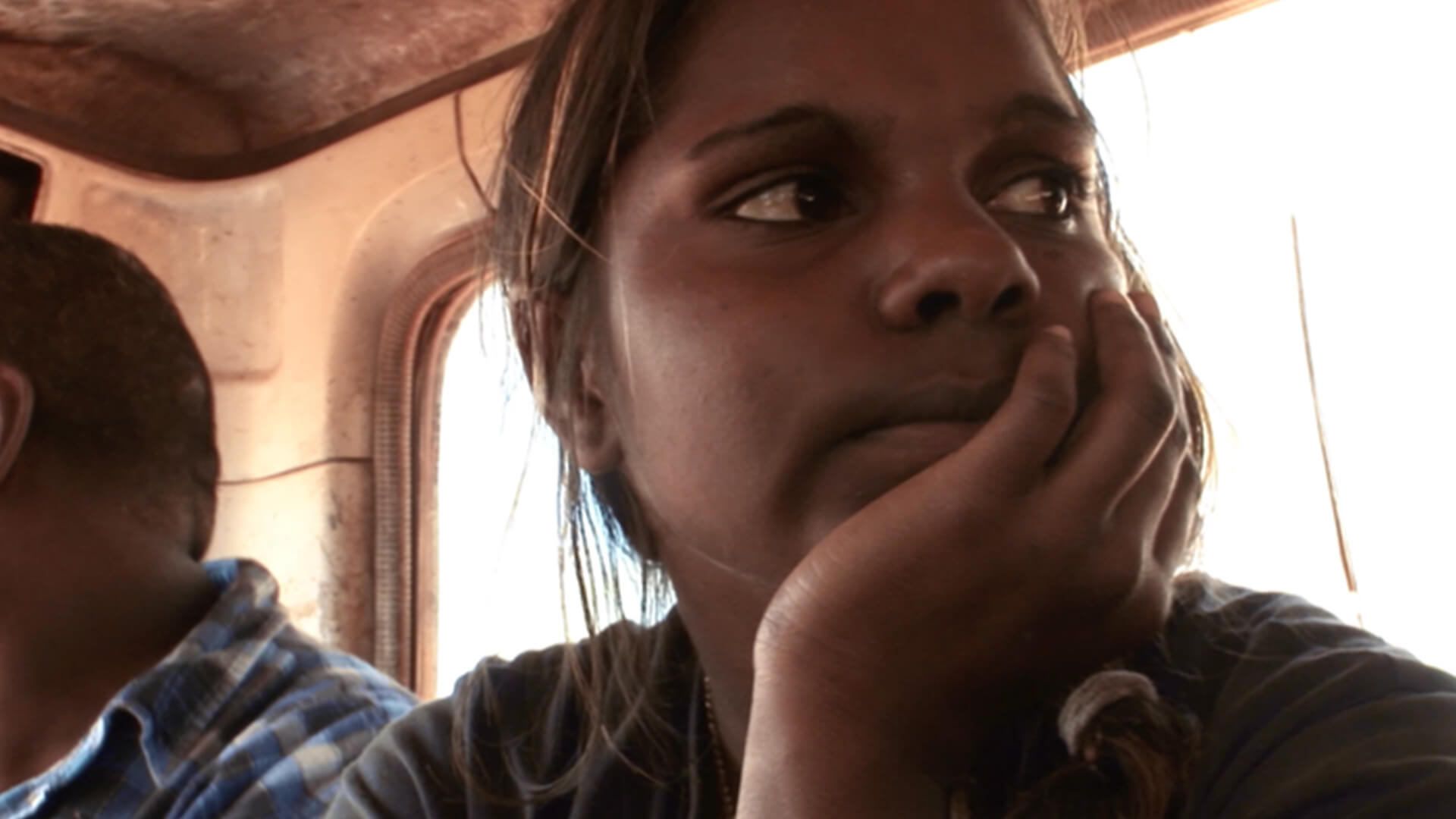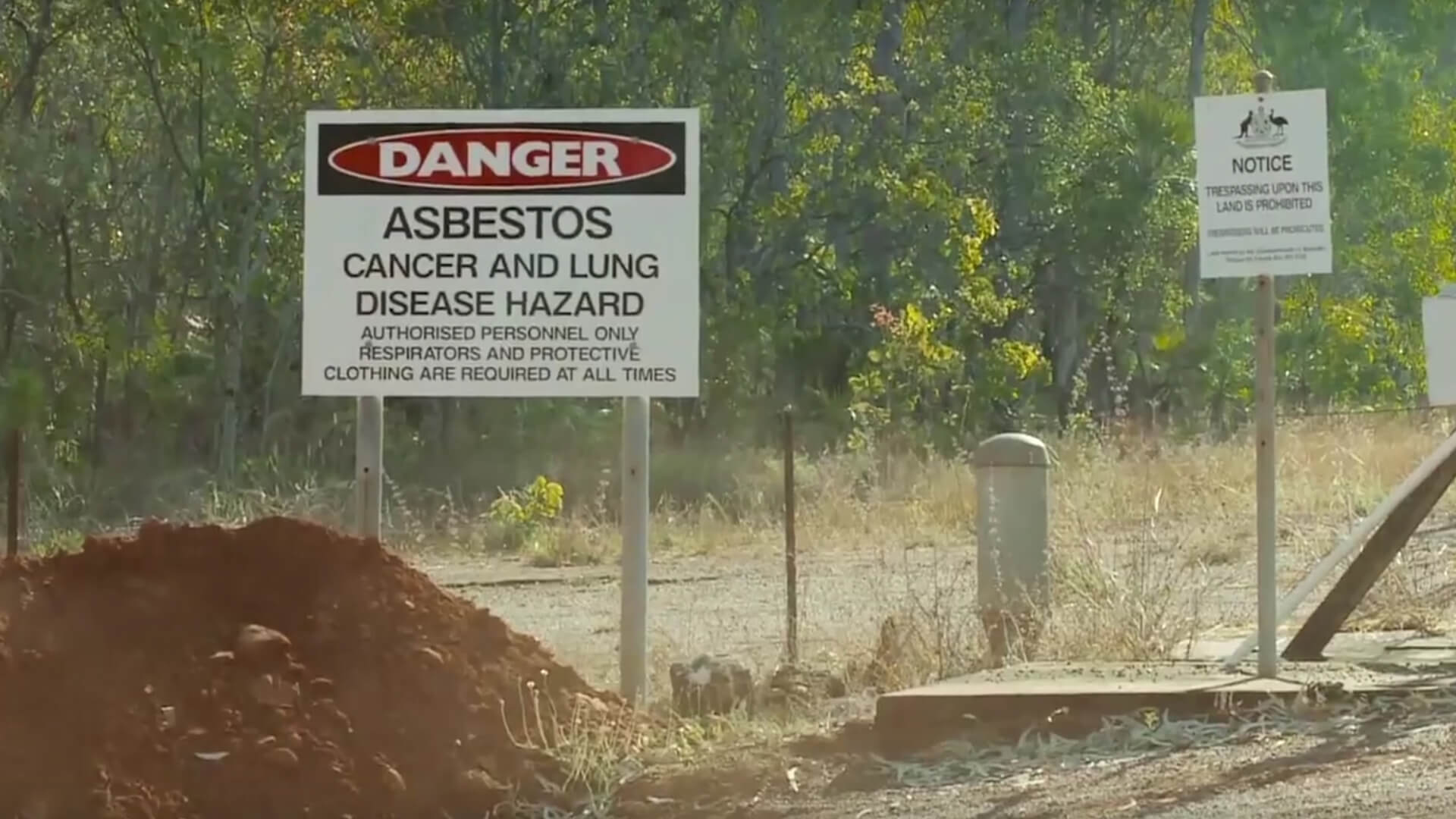



Karrabing Film Collective—Day One
What does it mean to be Indigenous in Australia today? This two-day programme presents the perspectives and work of the Karrabing Film Collective, an Indigenous media group based in Australia’s Northern Territory, which uses filmmaking and installation as a form of grassroots resistance and self-organisation.
The programme on Day One will begin with a pre-recorded talk by a founding member of the Karrabing Film Collective, Elizabeth A. Povinelli, who is the Franz Boas Professor of Anthropology and Gender Studies at Columbia University. Her books include Geontologies: A Requiem to Late Liberalism (2016), Economies of Abandonment: Social Belonging and Endurance in Late Liberalism (2011), and The Cunning of Recognition: Indigenous Alterities and the Making of Australian Multiculturalism (2002). She will discuss the beginnings and workings of the Collective, and the networks of power and politics that it encounters and reveals through its work.
This talk will be followed by the screening of two early films by the Collective, When the Dogs Talked (2014) and Windjarrameru, The Stealing C*nt$ (2015).

WHEN THE DOGS TALKED
Australia | In English with English subtitles | 2014 | 33 min 55 sec | PG13 (Some Coarse Language)
“Do you believe your mother’s Dreaming?”
As a group of Indigenous adults argue about whether to save their government housing or their sacred lands, their children struggle to decide how the ancestral Dreaming makes sense in their contemporary lives. As they listen to music on their iPods, walk through the bush and go boating across the seas, they follow their parents on a journey to re-enact the travel of the Dog Dreaming. Along the way, the children press their parents and each other about why these stories matter, and what relevance it has with their modern worldview.
When the Dogs Talked premiered at the Gertrude Contemporary, Melbourne, and the Institute of Modern Art, Brisbane, and won the Cinema Nova Award for Best Short Fiction Film at the Melbourne International Film Festival (2015).

WINDJARRAMERU, THE STEALING C*NT$
Australia | In English with English subtitles | 2015 | 36 min 33 sec | PG13 (Some Coarse Language)
In the Australian bush, an Indigenous boy is at rest. This quiet scene is interrupted by a gang of four other boys who happen upon two cartons of beer nearby. A sharp exchange of words between them soon sets a series of events into motion that sees the group escaping into a radioactive marsh to hide from local police after being falsely accused of theft, while all around them miners continue to pollute their land.
Through this story of teenage boys who fall into a trap—presumably set to get them jailed for a minor offence—and have tricks played on them by ancestral spirits, Windjarrameru, The Stealing C*nt$ blends Indigenous storytelling and modern concerns over environmental degradation and substance abuse.
The film premiered at the Melbourne International Film Festival (2015).
Karrabing Film Collective (est. 2007, Australia) comprises an intergenerational mix of approximately 30 Indigenous Australians, mostly from the rural Belyuen community, and anthropologist Elizabeth Povinelli, who has worked with them since 1984. The group was formed in response to the Australian government’s aggressive Northern Territory National Emergency Response measures regarding welfare provision, law enforcement, and land tenure for Indigenous communities.
In the Emmiyengal language, “karrabing” means “low tide”, foregrounding the connection between Indigenous peoples, outside of divisions that the state puts in place based on clan and territory. Together, members have sought to generate their own model for Indigenous filmmaking and activism by creating art through communal thinking and experimentation.
Shot on handheld consumer-grade cameras and phones, most of Karrabing’s films dramatise and satirise the everyday issues that members face, such as the bureaucracy of the nation-state, youth incarceration for minor offences, cuts in social welfare, and pressure on Indigenous communities to open up ancestral lands to mining corporations. These subjects are explored through an approach the group has termed ‘improvisational realism’, which opens a space beyond binaries of the fictional and the documentary, the past and the present. Seamlessly blending fiction and documentary traditions, these films are a way for the group to retain connections to land and the ancestral Dreaming.
Its work has been presented at Institute of Modern Art, Brisbane; Van Abbemuseum, Eindhoven; Institut fur Auslandsbeziehungen, Berlin; Jakarta Biennale; Centre Pompidou; Tate Modern; documenta 14, Kassel; Melbourne International Film Festival; Berlinale; Asia Pacific Triennial, Brisbane; MoMA PS1, New York; and Biennale of Sydney; among others. In 2021, the Collective was awarded the Eye Art & Film Prize.
This presentation belongs to a three-part film programme that explores prevailing narratives concerning Indigeneity in Australia and Vietnam. It is conceived in conjunction with the ongoing special exhibition, Ever Present: First Peoples Art of Australia that runs from 27 May to 25 September 2022 at National Gallery Singapore.
The other presentations in this programme feature the documentary Firestarter—The Story of Bangarra about the Bangarra Dance Theatre, a company of professional Aboriginal and Torres Strait Islander performers, as well as moving image works by Vietnamese artist Nguyen Trinh Thi.
As part of this programme, there will be free curator tours of the Ever Present exhibition on Sunday 10 July, 11am and 12pm. Please click ‘BOOK TOUR’ to register.
City Hall Wing, Level B1, The Ngee Ann Kongsi Auditorium (National Gallery Singapore)
- Sat 09 Jul | 2.00pm
City Hall Wing, Level B1, The Ngee Ann Kongsi Auditorium (National Gallery Singapore)
- Sat 09 Jul | 2.00pm
- SHARE THIS PROGRAMME
Films
Films
Films
Films
